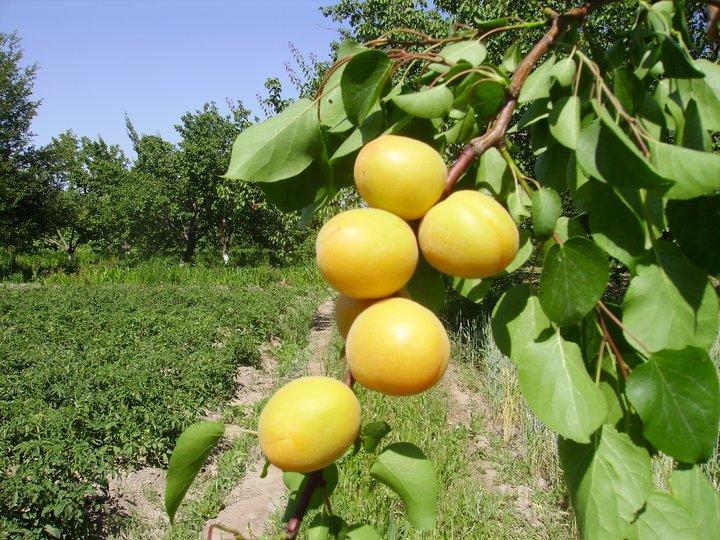Increasing the profile of crop diversity in Uzbekistan

Bioversity International and partners joined forces to address the challenges to the existing system of seed and planting material production in Uzbekistan resulting in significant gains and changes to the agricultural policy.
Bioversity International and partners joined forces to address the challenges to the existing system of seed and planting material production in Uzbekistan to increase the profile of crop diversity. The efforts resulted in significant gains and changes to the agricultural policy.
Access to varieties of crops has become more vital than ever to smallholder farmers in Uzbekistan as they face mounting challenges to their agricultural production particularly due to intense droughts and soil salinization, among other factors related to climate change. A recent effort has resulted in significant increases in the number of propagated varieties and in the quantity of high quality samplings of target fruit tree species.
Since Uzbekistan's independence in 1991, the seed supply for a range of traditional agricultural crops crucial for the farmers' livelihoods and nutrition has been aggravated by a series of agricultural reforms, lack of public support, absence of efficient monitoring mechanisms and other agronomic, socio-economic and policy factors. An initiative by Bioversity International and partners was designed to study and confront these issues.
The research showed that farmers are the key suppliers of selected target crops originating in central Asia. However, they do not always have access to high quality nor improved varieties of seeds. The connections with research organizations and seed quality control agencies through which farmers obtained information and materials were also studied and shown to be rather weak. Thus, an important aim was to better these connections and introduce farmers to larger varieties of food crops to raise the profile of fruit and vegetable species. The outcome was an average increase of 30% in the number of propagated varieties for apple and apricot, and up to 45% – depending on project site – in the quantity of high quality samplings of target fruit tree species.
The farmers, whose involvement in seed production has generally been very limited, have unexpectedly been the main force behind these increases. Supported by the Uzbek Research Institute of Horticulture, Viticulture and Winemaking, the farmers worked closely with researchers as producers and traders to develop quality standards for the fruit tree samplings and create portfolios of varieties adapted to the specific environmental conditions and market demands of each project site.
This undertaking also contributed to important changes in Uzbekistan's agricultural policy. The emphasis is now being shifted from focusing on cotton and wheat to vegetables and fruits, thus making the country's agriculture more diverse and more sustainable.
This text is adapted from 'Increasing the profile of crop diversity in agricultural production and policies in Uzbekistan'.Read more about it here.
Partners: This research was carried out in partnership with the Uzbek Research Institute of Horticulture, Viticulture and Winemaking, the Tashkent State Agrarian University and the Uzbek Research Institute of Plant Industry, and with the support of the Swiss Agency for Development and Cooperation, the CGIAR Research Program on Policies, Institutions and Markets (PIM), and CGIAR Fund Donors.
Photo: Local apricot variety, Uzbekistan. Credit: Bioversity International/K.Baymetov
